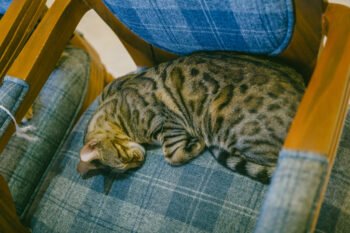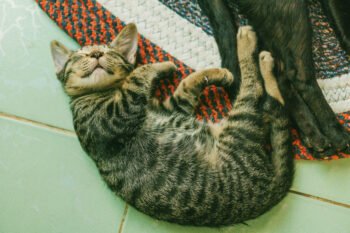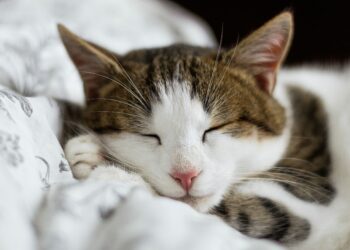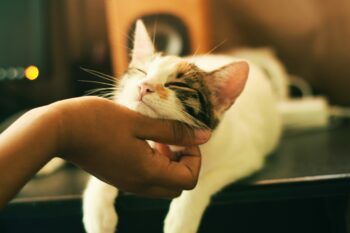Cat Fanciers’ Association International Allbreed Judge Kitty Angell has more than 20 years of experience in judging, breeding, and exhibiting pedigreed cats. We sat down with Kitty to find out what it takes to become a respected cat show judge.
Q. How long did it take you to become a judge?
A. When I became a judge you only had to be a breeder for seven years, but I was a breeder 10 years before I applied. It wasn’t that I didn’t feel I was ready for judging the cats, but, to be frank with you, I wasn’t sure how I would do with the people. Obviously, a judge has to sometimes learn how to handle people. [Judges need] the ability to be tactful and diplomatic with people and to be honest and fair without hurting somebody’s feelings.
Q. Does working with the exhibitors take years to really get good at?
A. It does, and unfortunately, not everyone completely masters it. You have to realize that you’re certainly not going to be pleasing everybody. In fact, you’re only going to be pleasing a few and you’ve got to be able to sort of roll with the punches. If people are upset, you’ve got to learn to live with it.
Q. What special qualities would you say the top-winning cats really must have?
A. Well, of course we judge to the written standard for perfection of the breed. And each breed standard is different in its own right in that the points are different for every breed. For some breeds there might be 30 points allotted for color, while for other breeds color may only count for five points. Take, for instance, the Ocicat. The Ocicat wears over 50 percent of its points on its coat; that’s made up of color, contrast, spotting, and the texture and quality of the coat. There are other breeds where they place a lot of points on the head. In the Persian breed there are only 20 points on color and only 10 on the coat–which is amazing–but there are over 55 points on the head.
Q. So if you’re judging a Siamese compared to a Ragdoll, for example, they’re really judged by how close they fit their own standard?
A. Exactly. And then when you’re deciding on which cats to put in your final, it’s basically how close they meet their standard, and then the ones who are the closest to perfection are the ones you’re going to place higher in the standings. And true show cats, who really love it, get out on the judging table and they sort of do it themselves. They love to be shown, they love to get out there and prance around, and of course that helps them. When you take out an animal who is just frightened or who really doesn’t care, doesn’t like the shows and is very shy, it’s harder to do something for that type of cat than it would be for a cat who just prances right out on the table and says “Hey, look me over.”
Q. Do you think that showy personality is something they’re just born with, or is it something that can be developed?
A. I think that some of it is bred into the lines, but I think a lot of it — and I can certainly speak from my own experience on this — has to do with how the owner feels. Sometimes owners who have just started showing and breeding cats will be very nervous at the shows, and believe it or not, this sometimes rubs off on the animal. Often cats who have been around people for awhile and are used to shows are a little more calm and a little more amenable to being shown. Then there are some cats, unfortunately, who just do not like it, and there’s nothing on earth you could ever do that would make them like it.
Q. What would you say you love most about judging cats?
A. Well, I can tell you what I love the most and I can tell you what I hate the most. What I love the most is being able to handle and pet and love that many cats in one weekend. What I hate the most is the travel, and of course since September 11, that has intensified 20-fold. There are many times when I think “Why am I doing this?” But the minute I get behind the judging table and I start getting the cats out, well, that answers my question — because I love to handle them, I love to interact with them, I love to talk to them and pet them, and I’m just very animal-oriented.
Q. What advice would you give to someone who wants to start judging cat shows?
A. My advice would be to watch judging rings and learn as much about the different breeds as possible. And visit catteries that breed the different breeds you’ll be judging, so that you can learn the fine points of each of these breeds.







